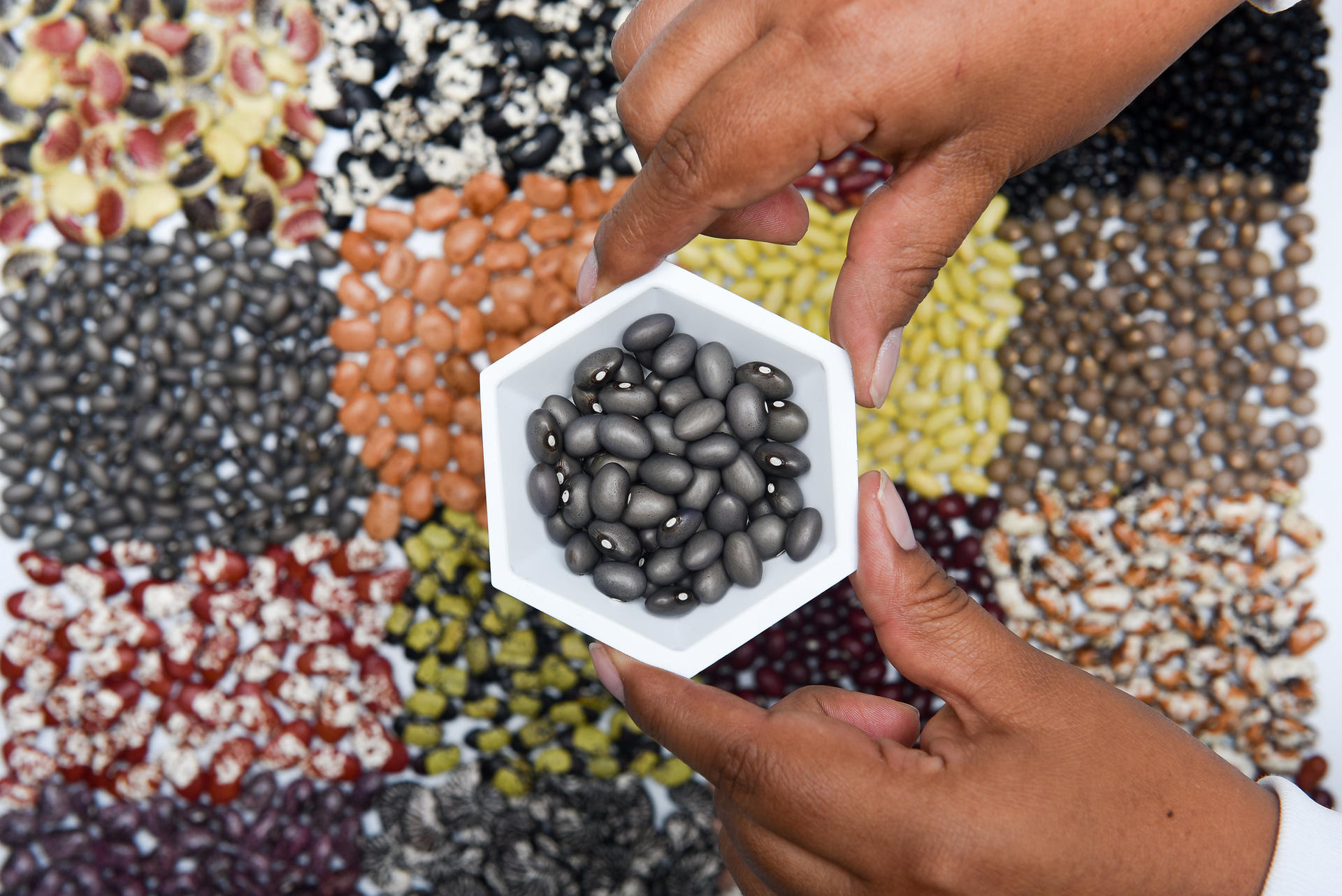Colombia Genebank

Please note that as we move our germplasm collections to the new Future Seeds genebank, germplasm distribution remains suspended for the time being. We will provide an update as soon as distribution is restored. We apologize for any inconvenience this may cause.
Our genebank in Colombia is home to the world’s largest collections of beans, cassava and tropical forages.

Beans Collection
Beans are important sources of protein and one of the most economically important crops for small farmers globally. Dry seeds (which are nutritious and store well) are the primary end product, but beans are also grown for their green leaves (often fed to livestock), and immature pods and seeds.
The bean (Phaseolus) collection stored in our genebank is of 37,938 accessions coming from 110 countries. Major contributors are Mexico, Colombia, Peru, Guatemala and the USA. Although the collection consists mostly of landraces and old commercial varieties, it also comprises wild forms of the five domesticated species, and germplasm of 40 wild species.
Since 1977, the Alliance genebank in Palmira, Colombia, has distributed over 430,000 samples (96% of the collection) to support breeding, agronomy, education, basic and applied research. 72% of these samples went to internal research programs and 28% to external users in 105 countries. Over 90% of the collection is currently safely backed up in the Svalbard Global Seed Vault, in our Palmira campus.

Cassava collection
Cassava (Manihot esculenta) is a perennial woody shrub with edible roots, which grows in tropical and subtropical areas of the world. In large areas of sub-Saharan Africa, and in parts of Latin America and southeast Asia, cassava is a major daily source of dietary energy.
The Alliance conserves in vitro the world’s most important collection of cassava germplasm. In vitro techniques consist in growing and multiplying parts of plants in flasks or tubes, under controlled environments and sterile conditions.
The cassava collection at Palmira includes a total of 5,967 accessions from 26 countries, represented in 5,690 cultivated clones of Manihot esculenta and nearly 250 genotypes of wild species conserved using in vitro techniques.
Over 37% of the cassava diversity held at Palmira’s Genebank originates from Colombia, with another 24% coming from Brazil. Accessions from other South American countries (21%), as well as Central America and the Caribbean (7%), and Asia (7%) are also conserved at our Genebank. Since 1979, over 43,400 samples of cassava accessions have been distributed in 84 countries.
Our collection is also safely duplicated both at the Corporación Colombiana de Investigación Agropecuaria (AGROSAVIA) in La Selva, Colombia, and at the International Potato Center (CIP) in Peru.
Through these facilities, the cassava germplasm indexed as pathogen negative is available for free, international distribution upon request. The germplasm is transferred with a health statement, a phytosanitary certificate and a copy of the Standard Material Transfer Agreement.
Tropical Forages Collection
Tropical forages encompass an extraordinary variety of herbaceous and woody plants selected mostly from undomesticated grass and legume species.
More than 600 species of grasses—out of a total of about 10,000 species—are currently used for grazing and livestock feed, and as harvested seed crops. In addition to feeding livestock for milk and meat production, forages can help reduce the environmental footprint of livestock production: improved forages might be one of agriculture’s most promising options for mitigating climate change.
Our genebank in Palmira safeguards one of the largest and more diverse tropical forages collections globally. With over 700 different species from 75 countries, comprising more than 22,000 accessions, this collection is crucial for pest and disease resistance, biomass production, high nutritive value, and tolerance to infertile, acid soils, drought and water-logging.
The diversity of our collection is complemented through our collaboration with the International Livestock Research Institute (ILRI)

